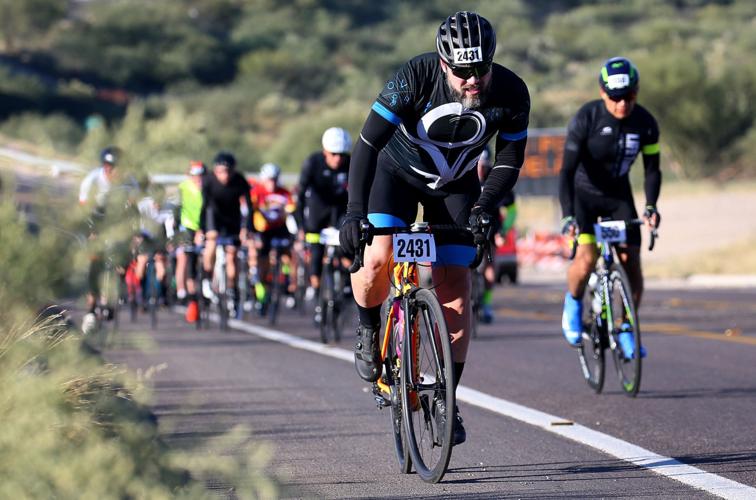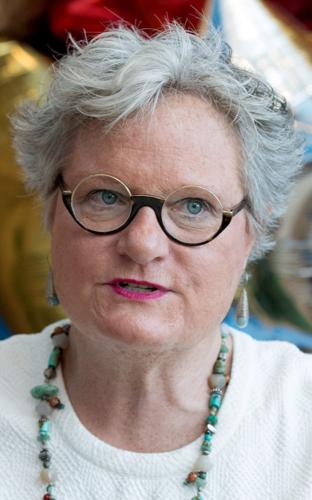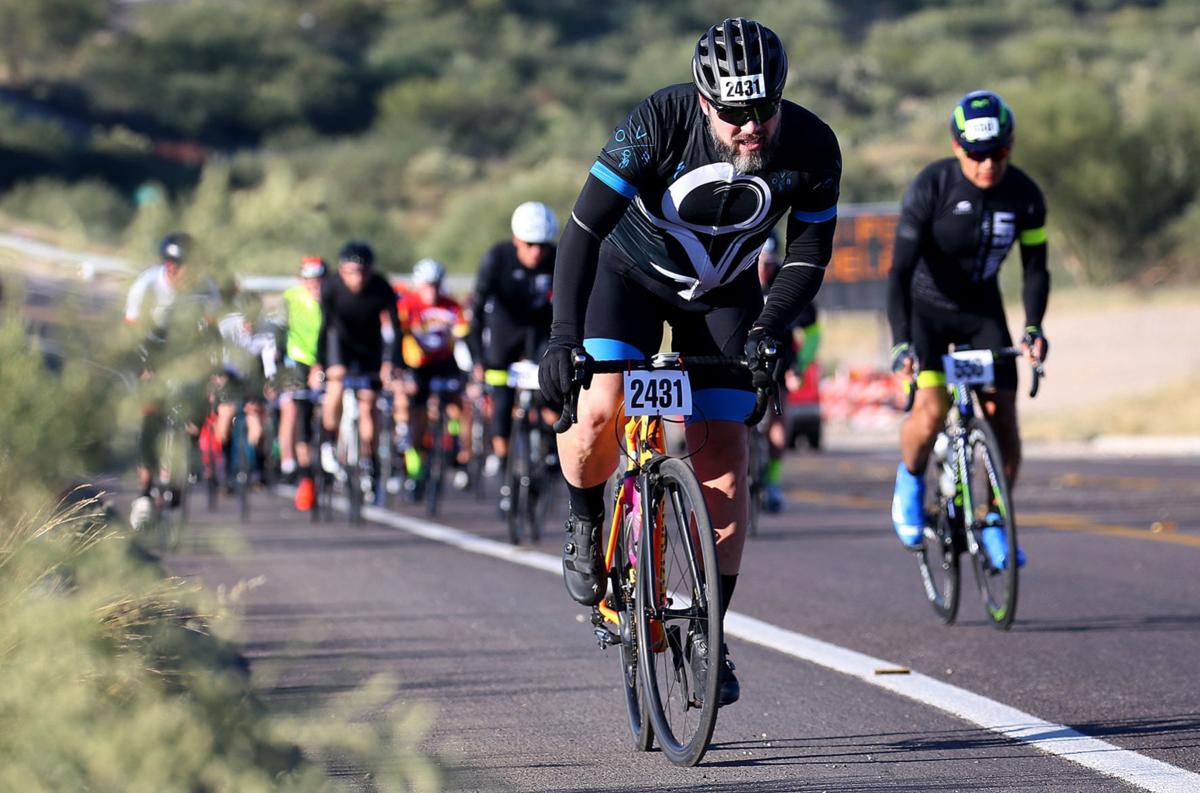It all starts with the chocolate milk.
Well, more accurately, it all ends with the chocolate milk.
Of all the myriad changes brought to fruition by new El Tour de Tucson CEO Charlene Grabowski, of all the acts of civil engagement from a passionate local cycling community, the one she is most excited about is the chocolate milk, donated by Arizona Milk Producers and Shamrock Farms, which will be passed out at the finish line.
That’s just one of many changes coming to the 37th El Tour de Tucson, which kicks off a three-day festival on Thursday and culminates with the big ride on Saturday.
“It started with the organization,” said Grabowski, a retired General Electric executive who was brought in to take the helm by Perimeter Bicycling Association of America, which runs El Tour. “We consider ourselves a 37-year-old startup. It started with company culture, a new way of thinking, trying to figure out how to take this to the next level.”
Grabowski, who took over for former CEO and El Tour founder Richard DeBernardis, 74, in August, upon his retirement following mounting financial troubles, said community safety is the first priority. Event managers have ordered extra signage and at aid stations, Grabowski said, and volunteers “will focus not only on energizing riders but making sure they’re hydrating,” with provisions including apples, oranges and bananas.

Charlene Grabowski
Event organizers eliminated the 75-mile ride because of safety concerns, as the convergence of 100-milers and 75-milers frequently led to congestion. This year’s event will include 100-mile, 50-mile and 25-mile options.
El Tour for the first time is allowing platinum riders a five-minute head start in the 100-mile ride, allowing the 600 or so competitive entrants — a field that includes Olympic hopefuls and professional cyclists — a less-crowded ride.
Of course, the five-minute head start and resulting gap between the first finishers and the 5,400 other non-platinum riders means El Tour needs a new timing system. Grabowski and her team have seen to that, too.
“For the Olympians and the pros, rarely do they get this opportunity, where the roads are shut down for them,” Grabowski said. “That’s what sets us apart from other big rides. Riders use this as part of their résumé. They use it for training. I want to make sure the event allows those Olympians to train. … But I’m trying to cater to both audiences, and to their families, and to the community. Safety, safety, safety is top of mind.”
So, too, is entertainment and community engagement. The festival that was formerly held in the Tucson Convention Center has been brought outside to Armory Park. They’ve increased the amount of food vendors to a dozen, including six with vegan options, and are bringing in craft-beer vendors.
They’ve committed to staying local, rallying around the local cycling community, with a raffle that includes multiple $2,000 bike frames.
Most of the big changes this year came following discussions with the local cycling community, Grabowski said.
“I went out to talk to cyclists in the community,” Grabowski said. “I went to visit Tucson, and I asked Tucson its opinion. I did a fair amount of voice of the customer. That’s where the idea of bringing the event outside, of letting the platinum riders go first, even changing the food options came from. Audiences are becoming more diverse, and you can’t just make hamburgers anymore. If you want to attract a diverse audience, you yourself have to think that way.”
In those discussions with the members of a passionate local cycling and fitness community, Grabowski learned quickly: “No one wants this to go away.”
“This race is very important for a number of reasons,” said Tucsonan Dennis Winsten, who’ll participate in the 50-mile ride on Saturday.
“No. 1 is Tucson’s reputation as a bicycle community. We’ve got the (Chuck Huckelberry) Loop, which is fantastic. It’s a great community event because of the different levels of competitors. You don’t have to be a professional to participate. I’m glad it’s being continued.”
That was never a question for Grabowski, who added, “it’s not in my fiber to let that happen.”
Not with the kind of support El Tour has in the community.
“We were recognized as the No. 2 city in the U.S. to live from Outside Magazine,” Grabowski said. “They call us the ‘Cycling, burrito-eating, rock-climbing’ capital. Chicago was No. 1. We were No. 2. There is a community here that is just open to wellness and spirituality and all of that goes hand-in-hand. I’m sure hoping we can be a showcase for that.
“Besides the chocolate milk, that was my goal.”






